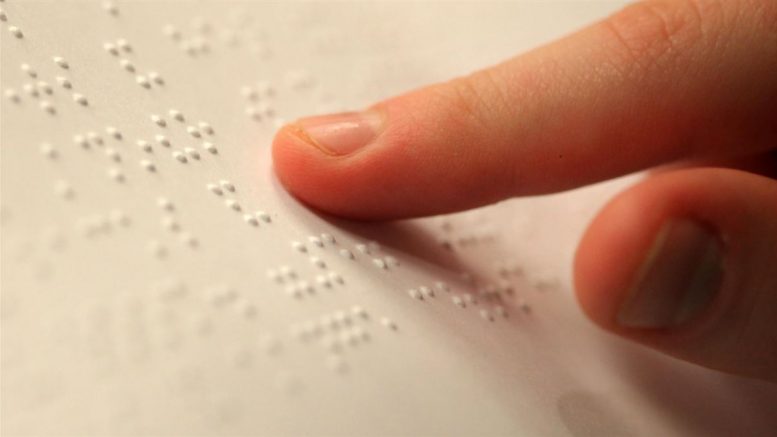OGDEN — A mother’s six-year conflict with the Utah Schools for the Deaf and the Blind over her severely disabled daughter’s education has veered back into U.S. District Court in Salt Lake City.
The U.S. 10th Circuit Court of Appeals in Denver ruled May 10 the Salt Lake court must reconsider its decisions in the case of a woman who filed suit in 2013 challenging the USDB’s handling of her daughter, who is blind, hearing-impaired and has been diagnosed with autism and a cognitive impairment.
State officials and parent advocates said such a case ending up in a federal appellate court is unusual, but varied approaches are a fact of life in the often difficult realm of educating students with disabilities.
“In every school district, and at the USDB, there are times things don’t match up the way the parent wants them to,” said Jennie Gibson, associate director of Utah Parent Center.
“Services for kids with disabilities are very important to a family,” she said. “It makes all the difference in how a student does as an adult if they get the right services along the way.”
The tussle involving the Ogden-based state school started in 2010 when USDB decided to eliminate its residential education program, according to court records. The mother and daughter, identified only by initials because of privacy laws, fought that planned closure along with other parents, and it was scuttled.
Story continues below photo.
Disagreements later arose over a deaf-blind assessment of the girl that was conducted at Perkins School for the Blind in Massachusetts in 2012. USDB paid $2,000 for the testing but refused to pay the mother’s travel costs to go there with her daughter.
USDB and the mother then disagreed over diagnoses of the girl’s levels of hearing loss and autism, and the institution then decided the student should leave the USDB residential setting and be taught in the Provo School District, where the family lives. The mother then sued in federal court.
The circuit court said the district court now must rule on whether the girl should be placed for further education at the Massachusetts school, as her mother requested.
The girl, who entered USDB in 2004, is working on basic life skills, court documents said.
Joel Coleman, USDB superintendent, said the process is governed by the federal Individuals with Disabilities Education Act (IDEA). Each student covered by the act receives an individualized education program, or IEP.
“What I really like, it is a very thorough process, and this due process tends to lead to very good outcomes for students,” Coleman said. “My personal thoughts are that I am a very big fan of the law.”
Congress passed the IDEA in 1975 to make sure children with disabilities have the opportunity to receive a public education, according to the federal government’s disability,gov website.
School districts are required to provide a “free and appropriate public education” to each qualified student with a disability. Schools must provide regular or special education and related aids and services that meet the student’s individual educational needs, the law says.
Coleman said USDB averages 15-25 students in its residential program at the Ogden campus. The institution also provides services to 2,200 disabled students in schools and other settings around the state.
“People still make mistakes,” Coleman said, and the good thing about the appeals process — including the rare advance to the federal circuit court level — gives schools and families opportunities to resolve a conflict and adequately cover a student’s wants and needs, he said.
“The unique nature of each child, combined with providing the appropriate public education, makes every case different,” he said.
USDB used to house hundreds of deaf and blind students, but approaches have evolved over the years.
Some students in their mid-teens to early 20s are housed at USDB. “It helps them learn independent living skills,” he said.
As the law and educational approaches change, “we update the way we serve them,” Coleman said.
Rather than routing all students through USDB or the school districts, in some cases “there is just as much value teaching them at home or in the local communities,” he said. “Generally we see a lot of programs moving away from residential settings.”
Story continues below photo.
Gibson’s Salt Lake City-based nonprofit group provides help for parents in dispute resolution. Increasing parental understanding and comfort levels during conflicts helps everyone, she said.
She said a staff member from her group was rebuffed by a school principal recently. “He said he didn’t want us in there, that he would get in trouble with the state and school district.”
But she said the mediation went well after the staff member explained the state Office of Education helps fund Utah Parent Center’s efforts “so things don’t get so escalated.”
Six Utah school districts contract with the Utah Parent Center to help mediate disputes with parents of the disabled.
Gibson said the Davis School District concluded the contract saved the district money because disputes were no longer “taking up the time of administrators who didn’t know what to do.”
“It is as individual as the teachers and the parents,” Gibson said. “Some teachers don’t get a kid, and a few parents, no matter what you do to make them happy, are not happy.”
A further complication, and an increasingly common one, is when a parent has autism, she said.
“They maybe have a difficult, harder time communicating with the school,” she said. “You run into everything you run into in real life.”
Please visit the source link below to read the entire article.
Source: www.standard.net




